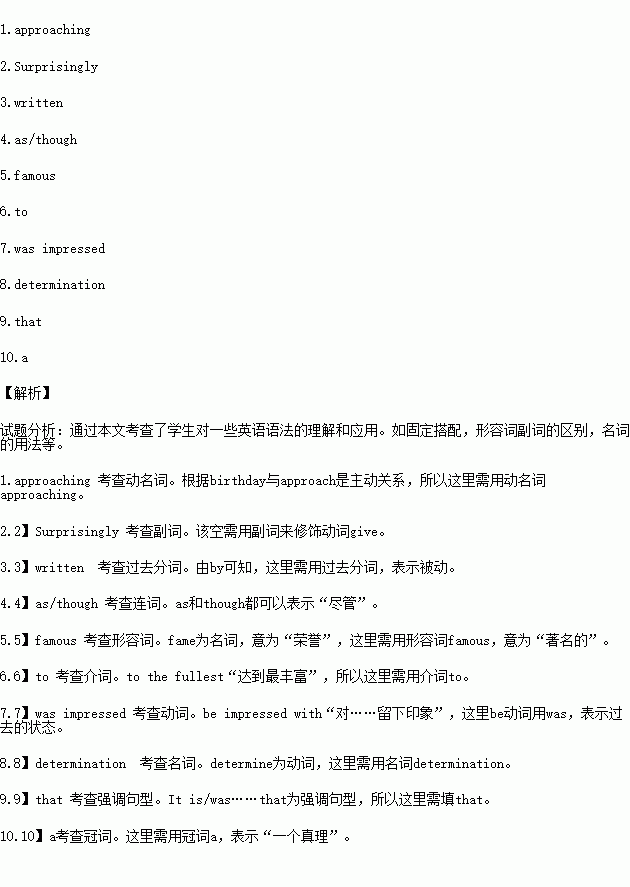题目内容
阅读下面材料,在空白处填入适当的内容(1个单词)或括号内单词的正确形式。
With my tenth birthday 1. (approach), I couldn’t help imagining what kind of present my parents would give me. 2. (surprising), they gave me a book, My Life Story, 3. (write) by an American writer—Helen Keller. In the book, she wrote that she had not been able to see, hear or speak. Disabled4. she was, with the help of Miss Sullivan, she learned how to write English words and published many 5. (fame) works, including My Life Story. It was Miss Sullivan’s continuous encouragement and instruction that inspired her to live her life 6. the fullest.
I 7. (impress) with Miss Sullivan’s kindness and the writer’s8. (determine). Whenever I felt depressed because of learning difficulties, I would read the book once more.
Although it was ten years ago 9. I read the book, it shows me 10. universal truth that books are friends, always pushing us to move on.


